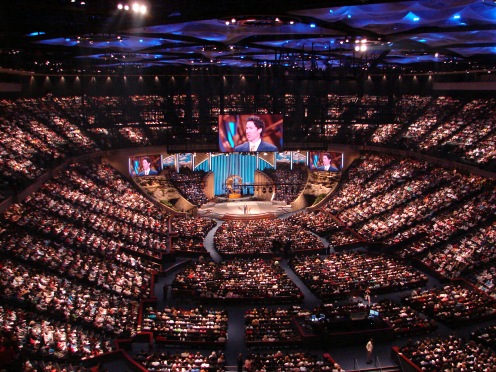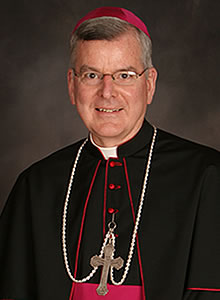[What follows is a exchange I had with a friend by email. After patting myself on the back after reading my excellent use of the term "chimp poop' in a sentence for the first time in my life, I figured I would share this]
[My friend:]
"Joe S [Soucheray] doesn't have much to do with it, but I find his complaints ring hollow because he is always blaming 'liberals', without seeing that his belief system leads to similar outcomes."
[Me:]
I agree. I stopped listening to him years and years ago because his Republicrat country club psuedo-conservatism was retarded.
I want to make 2 points to you.
1) Look, I understand wanting to see the "fruit" of a religion. There is nothing wrong with wanting to see how members of a religion live out their lives and judging, to at least some degree, their religion by their actions. So I agree with you to a point there. So does the Catholic Church. The marks of the Church to us are different than for Reformed. One of those marks is that the Church is Holy, along with One, Catholic, and Apostolic. So yes, holines does have to be a mark of the Church. But even in the new Testament we see poor behaviour even among the Apostles. So of course when we say the Church is holy, that does not mean impeccable, and if that impossible standard of impeccability does not apply even to the Apostles withing the writings of the New Testament, they we can't expect it to apply now.
2) Follow my train of thought. I think we can agree on the following points:
1. All people in all religions sin and do dumb stuff.
2. Catholics are people in a religion.
3. Angicans are people in a religion.
4. Presbyterians are people in a religion. Etc, etc.
5. These groups not being impeccable does not disprove the validity of their religion, unless their being impeccable is a doctrine of their religion.
6. None of these groups have a stated doctrine or dogma that they will be impeccable.
Ok, so I think we can agree on those points, right?
So, why all the fuss about Catholics being sinners from you? And not only that, but connecting it to the validity of Catholicism in general? I can see if you decided to leave Christianity because of hypocrisy and sin among Christians, but to sit over in the Anglican/Reformed corner of the Christian room and throw your chimp poop on the Catholics for being sinners is just shameful. Take a look in the mirror dude, we all suck.
So I see a big inconsistency in your problem/argument with Catholicism. If sin disproves Catholicism in the way you seem to think it does, then it should also disprove Christianity in general. But yet you do not reject Christianity in general. So do you see where it seems to me you are inconsistent?
In the Catholic Catechism, check out 823 to 829 and read for yourself what we believe about the holiness of the Church.
http://www.scborromeo.org/ccc/p123a9p3.htm#II
Particularly 828 and 829 explain it well. And most of the whole section could be afirmed by me before I was Catholic (other than the bit about canonizing saints). The saints are how the Church exibits the holiness promised it by God. Again, this is not really disagreed upun between Prots and Catholics. We both agree the Church is holy, and we both agree the Church has sinners in it. So again, I just don't know what you think you acomplish by pointing out Catholic failings (or percieved failings as sometimes you have done)? Yes it is a scandal for Christians to sin, but this does not disprove the holines of Christ's Church, however that Church might be concieved of in it's organization.
Along with this point, I want to also say that you are really being one sided in your pointing out the faults of Catholics. Yes there are sinners, but there are saints too. Many thousands of saints! There are great and holy reformers like St. Francis who revolutionized the Church and really cleaned house, bringing much needed renewal. And St. Catherine of Sienna who boldly stood up to the pope and cowed him into doing the right thing. Both of these reformers didnt change any dontrine, they just helped the Church to live up to what it already believed. These are two examples among many. Waht about all the monestaries filled with quiet people spending a life in prayer and solitude?
Ever seen the indie film Into Great Silence?
http://www.youtube.com/watch?v=BUYjqp5PDdc
These men arent sinless, but please, they are holy people who have given everything for Christ and exibit the holiness of the Church! Even in modern times, who can bring a charge against Bl. Mother Teresa or St. Padre Pio? These are holy people who exibit Christ to the world. And yes, I would include many Protestants I have known too who are just visibly holy people. You can almost feel it being in the same room that they are so full of Christ they are bursting. This is the holiness that is a mark of the Church. I believe the Catholic Church has that holiness, and I wouldnt argue with even my Pentecostal brother if he were to say that his denomination was the true Church based on some of it's holy men and women. I have seen Pentecostals that looked like they had a halo they were so holy. I have seen a few Reformed women that did as well. And I have seen more Catholics like that than any. Perhaps because Catholics are more numerous, whatever. My point is that the Church is holy, and if you atack the Catholic Church for it's sin, you are proving too much, because you are atacking whatever Christian group you are a part of too at the same time. If Catholicism is false because of it's sinners, then your denomination is false too.
The Catholic Church is the largest charity in the world. Period. Does that say anything to you? Do you know the bishops conference in the US (USCCB) has a "Fortnight of Freedom" going on right now in every diocese in the US for Christians to show their displeasure with government removal of our freedoms? Have you seen Cardinal Dolan recently in the media talking trash on Obama? Do you know that
ALL ~188 bishops in the USA, yes, every single one of them, came out personally, publicly and in writing AGAINST at least the abortion/contraception mandate and most against Obamacare in general? That is not bad.
 |
| Not a clipped haired lesbian in the bunch. |
Did you know Communism, according to oficial Catholic doctrine, is not a valid form of government, and that John Paul 2 was instrumental (with Reagan) in bringing the beast to it's knees? Do you know that the central, underlying principle of Catholic economic theory that must be present in any governmet is privatye ownership of property? That is not negotiable for Catholics.
 |
| This pic has nothing to do with this post. Now back to your regularly scheduled rambling. |
Did you know that many of the Catholic politicians you have criticized are already excommunicated, either by decree or by latae sententiae excommunication? http://en.wikipedia.org/wiki/Latae_sententiae
Kathlean Sebalius herself has been excommunicated in her home dioces and in D.C? And Nancy Pelosi was recently denied a photo op with the Pope and instead he privately lectured her for 15 minutes, giving her an excommunication warning.
Do I wish the bishops did more? Yeah. But they are doing some things, and they are getting better and more faithful as each year goes by and the hippie ones die off. The members of the Church arent perfect. But the Church is holy.
So...
Will you please admit that bringing sins of Catholics to light does not show the Catholic Church to be false?
Sorry you didnt get your job. Perhaps you should learn some farming skills and head out to the hills somewhere. That's my plan!
-David

































